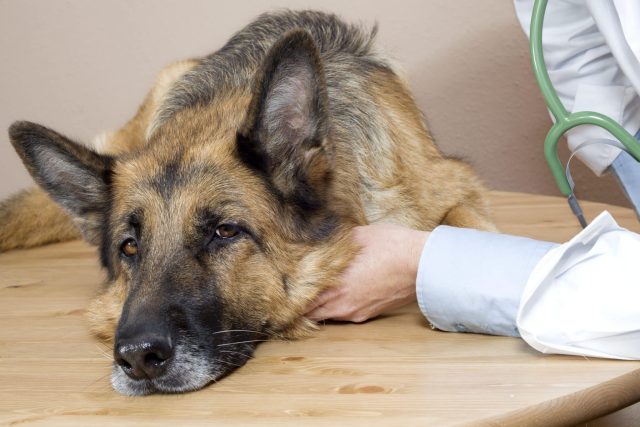
Check out our latest products
The liver is one of the hardest-working organs in your dog’s body, quietly performing hundreds of essential tasks that keep them healthy, energetic, and disease-free. Yet, it’s often overlooked—until something goes wrong. Understanding how the liver works and knowing the signs of trouble can help you catch issues early and give your pup the best chance at a long, happy life.
Let’s explore what makes the canine liver such a vital organ, what to watch out for, and how to support your dog’s liver health.
What Does the Liver Do in Dogs?
The liver is the largest internal organ in your dog’s body, and it plays a role in almost every system. Located in the upper abdomen, it performs over 500 functions, including:
-
Filtering toxins from the blood
-
Processing nutrients from food
-
Storing vitamins and minerals
-
Producing bile to help with digestion
-
Making proteins that support blood clotting and immune response
-
Regulating metabolism and hormone levels
Think of the liver as a detox center, power plant, and warehouse all rolled into one. Because it’s so involved in vital processes, liver problems can affect everything from digestion to behavior.
Signs of Liver Trouble in Dogs You Shouldn’t Ignore
Because the liver is so central to your dog’s health, problems can show up in many different ways, some subtle and others more alarming. Here are common signs of liver trouble:
-
Lethargy or weakness
-
Loss of appetite or weight loss
-
Vomiting or diarrhea
-
Yellowing of the eyes, gums, or skin (jaundice)
-
Increased thirst and urination
-
Swollen abdomen (from fluid buildup)
-
Disorientation or strange behavior (a sign of hepatic encephalopathy)
-
Seizures or stumbling
-
Dark-colored urine or pale stools
These symptoms may develop gradually or appear suddenly, depending on the cause. If your dog shows any of these signs, it’s important to see your veterinarian as soon as possible for evaluation and testing.
Common Liver Diseases in Dogs
Liver disease isn’t one single condition—it’s an umbrella term for a variety of issues that affect the liver’s structure or function. Some of the most common include:
1. Chronic Hepatitis
2. Liver Shunts (Portosystemic Shunts)
-
A congenital or acquired condition where blood bypasses the liver, allowing toxins to circulate.
-
Often seen in small breeds like Yorkies and Maltese.
3. Fatty Liver Disease (Hepatic Lipidosis)
-
Occurs when fat accumulates in the liver, typically due to poor diet, obesity, or metabolic stress.
4. Toxin-Induced Liver Damage
-
Caused by ingestion of harmful substances like xylitol (a sugar substitute), mushrooms, some medications, or certain plants.
5. Liver Cancer or Tumors
6. Infectious Diseases
Many liver diseases are treatable or manageable—especially when caught early—through dietary changes, medications, supplements, or in some cases, surgery.
How to Support Your Dog’s Liver Health
While some causes of liver disease are genetic or unavoidable, you can take steps to support your dog’s liver for the long haul:
-
Feed a high-quality, balanced diet appropriate for their age and breed.
-
Avoid unnecessary medications or supplements unless prescribed by a vet.
-
Keep toxic foods and substances out of reach, including grapes, onions, and human medications.
-
Schedule regular checkups with your vet, especially for senior dogs.
-
Consider liver support supplements like milk thistle, SAM-e, or turmeric (ask your vet first).
Routine blood work can help catch liver issues before symptoms appear, giving you more treatment options and better outcomes.
Final Thoughts: Keep Your Dog’s Liver Working for Life
The liver might be your dog’s most underappreciated organ, but it plays a critical role in their overall health and well-being. From filtering toxins to powering digestion and immunity, the liver does it all—and when it starts to fail, the effects can be wide-ranging and dangerous.
By learning the signs of liver disease, understanding the conditions that can affect it, and taking simple steps to support liver health, you’ll help ensure your dog enjoys a longer, healthier, and happier life.










![[5G & 2.4G] 2K Indoor Security Camera for Home Security, AI Voice Change for 2-Way Talk, Motion Detection, Night Vision, 24/7 SD Recording/Cloud Storage, WiFi Home Camera, Pet Cam with Phone App](https://i3.wp.com/m.media-amazon.com/images/I/61I2U+sTT3L._AC_SL1500_.jpg?w=300&resize=300,300&ssl=1)






